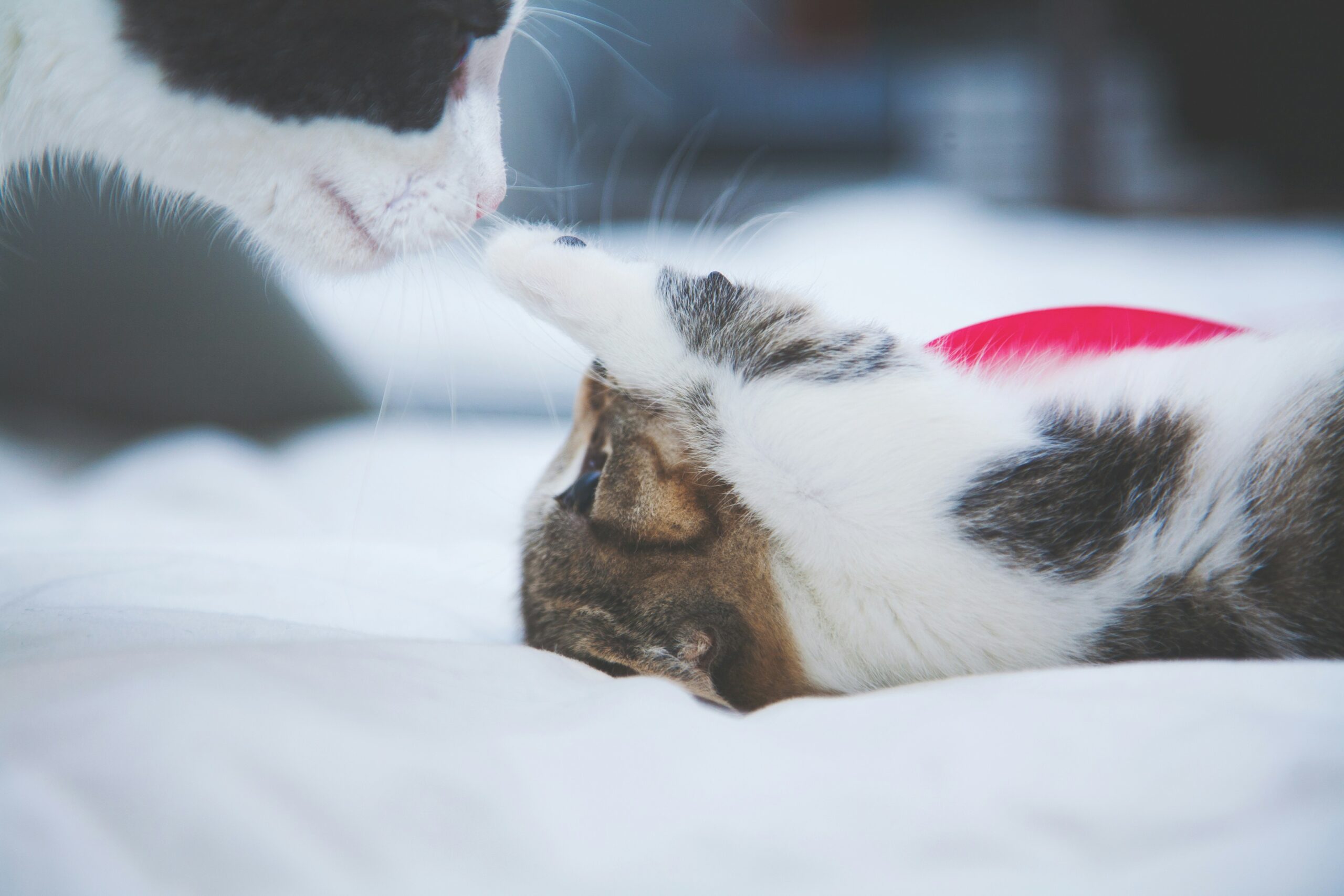Vet Care for Cats: A Comprehensive Guide for Your Cat’s Health

As a cat owner, ensuring the health and well-being of your feline friend is a top priority. Regular veterinary care plays a crucial role in maintaining your cat’s overall health and detecting any potential problems early. From vaccinations and dental care to addressing behavioral changes, vet care is more than just a routine check-up—it’s a commitment to your cat’s lifelong health.
This guide will cover the key aspects of vet care for cats, including the importance of regular vet visits, common health issues, preventive care tips, and how to recognize when your cat needs veterinary attention.
1. The Importance of Regular Vet Visits
Just like humans, cats benefit from regular medical check-ups. Regular vet visits help ensure that your cat stays healthy, and they allow the vet to catch any underlying health issues before they become serious.
Why Regular Vet Visits Matter:
- Preventive care: Early detection of diseases can improve outcomes and reduce treatment costs.
- Vaccinations: Regular visits ensure that your cat’s vaccinations are up to date, protecting them from preventable diseases.
- Parasite control: Vets can provide treatments for parasites such as fleas, ticks, and worms, which are common in cats.
- Weight management: Regular vet visits can help track your cat’s weight and ensure they are on a healthy diet.
- Dental health: Many cats suffer from dental issues, which can be addressed during routine check-ups.
How Often Should Cats Visit the Vet?:
- Kittens: Need to visit the vet for vaccinations and health checks every 3-4 weeks until they are about 16 weeks old.
- Adult cats: Should visit the vet at least once a year for a wellness check.
- Senior cats (7+ years): Should have biannual check-ups, as they are more prone to health issues like kidney disease and arthritis.
2. Vaccinations: Keeping Your Cat Protected
Vaccinations are a critical part of your cat’s veterinary care routine. They help protect against common, potentially fatal diseases. Your vet will recommend a vaccination schedule based on your cat’s age, lifestyle, and health.
Core Vaccines for Cats:
- Feline Panleukopenia (Distemper): A highly contagious and often fatal viral disease that causes vomiting, diarrhea, and dehydration.
- Feline Herpesvirus and Calicivirus: These are responsible for upper respiratory infections, which can be severe in kittens and older cats.
- Rabies: Required by law in many areas, rabies vaccination is essential as this virus is fatal and can be transmitted to humans.
Non-core Vaccines:
- Feline Leukemia Virus (FeLV): Recommended for outdoor cats or cats in multi-cat households. FeLV can suppress the immune system and lead to secondary infections.
- Feline Immunodeficiency Virus (FIV): Similar to HIV in humans, FIV weakens the cat’s immune system. A vaccine is available but may not be recommended for all cats.
Vaccination Schedule:
- Kittens: First vaccinations should start at 6-8 weeks, with boosters every 3-4 weeks until 16 weeks.
- Adults: Depending on the vaccine, adult cats need boosters every 1-3 years.
3. Common Health Issues in Cats
While regular vet visits and preventive care are essential, it’s important to be aware of some of the common health issues that affect cats.
1. Feline Lower Urinary Tract Disease (FLUTD):
FLUTD is a broad term used to describe various conditions affecting the bladder and urethra in cats. Symptoms include difficulty urinating, blood in urine, and excessive grooming around the genital area.
- Causes: Stress, obesity, urinary stones, and bladder inflammation.
- Prevention: Feeding a high-quality diet, providing plenty of fresh water, and reducing stress can help prevent FLUTD.
2. Kidney Disease:
Chronic kidney disease is common in older cats and can result in lethargy, increased thirst, weight loss, and poor coat condition.
- Causes: Age, genetics, and certain infections.
- Prevention: Regular vet check-ups, especially for senior cats, and monitoring your cat’s diet can help manage kidney health.
3. Dental Disease:
Cats can suffer from various dental problems, including tartar buildup, gingivitis, and tooth resorption. Dental disease can lead to pain, difficulty eating, and infections that can spread to other parts of the body.
- Prevention: Regular dental cleanings, feeding dry food, and providing dental chews can help maintain oral health.
4. Obesity:
Obesity is a growing problem in cats, especially those who live indoors and have limited opportunities for exercise. Obesity can lead to diabetes, joint issues, and reduced lifespan.
- Prevention: Feed your cat a balanced diet, avoid overfeeding, and encourage playtime and exercise.
5. Parasites:
Fleas, ticks, and worms are common parasites that affect cats. Left untreated, they can cause skin irritation, anemia, and even transmit diseases.
- Prevention: Use vet-recommended flea and tick preventatives and dewormers, and regularly check your cat for signs of parasites.
4. Preventive Care Tips for Cats
Preventive care is the best way to keep your cat healthy and happy. Incorporating these tips into your cat care routine can prevent many common health issues.
1. Proper Nutrition:
A high-quality diet tailored to your cat’s age, weight, and health condition is essential. Cats are obligate carnivores, meaning they require a diet rich in animal-based proteins. Consult your vet to choose the right food for your cat’s needs.
2. Hydration:
Cats are notorious for not drinking enough water, which can lead to urinary tract issues and dehydration. Ensure your cat always has access to fresh water, and consider using a water fountain to encourage more drinking.
3. Regular Exercise:
Encourage daily playtime to keep your cat physically active and mentally stimulated. Interactive toys, laser pointers, and climbing trees can help your cat stay fit and reduce the risk of obesity.
4. Dental Care:
Brushing your cat’s teeth regularly can prevent dental disease. If brushing isn’t an option, dental treats and vet-approved dental chews can help maintain oral health.
5. Litter Box Hygiene:
Keep the litter box clean and fresh to encourage proper bathroom habits. A dirty litter box can lead to stress, urinary issues, and even behavioral problems like inappropriate urination.
6. Mental Stimulation:
Mental health is just as important as physical health for cats. Puzzle feeders, new toys, and interaction with family members can keep your cat’s mind sharp and reduce anxiety or boredom-related behaviors.
5. Recognizing When Your Cat Needs Veterinary Attention
Cats are masters at hiding illness, so it’s important to be vigilant about any changes in their behavior, appetite, or appearance. Here are some signs that indicate it’s time to visit the vet:
1. Changes in Appetite or Weight:
If your cat suddenly stops eating or loses weight rapidly, it could be a sign of a serious health issue like kidney disease or hyperthyroidism.
2. Lethargy or Weakness:
A sudden decrease in energy or reluctance to move could indicate pain, illness, or injury.
3. Vomiting or Diarrhea:
Occasional vomiting or diarrhea may not be a cause for concern, but if it persists for more than 24 hours, it’s time to consult the vet.
4. Coughing or Breathing Issues:
Any signs of labored breathing, coughing, or wheezing should be addressed immediately, as they could indicate respiratory issues or heart problems.
5. Changes in Urination or Defecation Habits:
If your cat is straining to urinate, has blood in their urine, or is not using the litter box, these could be signs of a urinary tract infection or other serious condition.
6. Behavioral Changes:
If your normally friendly cat becomes aggressive or hides more than usual, it could be a sign of pain or illness.
Conclusion
Vet care is an essential part of keeping your cat healthy and happy. Regular check-ups, vaccinations, and preventive care can help your cat live a long, healthy life. Being proactive about your cat’s health by monitoring their behavior and knowing when to seek veterinary attention can make all the difference. By providing proper nutrition, exercise, and mental stimulation, you can ensure that your feline friend thrives for years to come.




